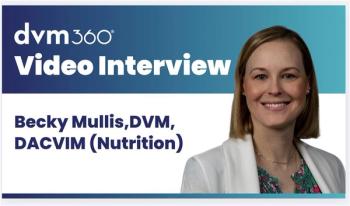
Nutrition leaving a bad taste in YOUR mouth?
Temperature, pulse, respiration, pain assessment and nutritional assessment. Face it, assessing nutrition and serving up solid recommendations is vital to keep your veterinary patients healthyand your "foodie" clients happy.
Getty images“I want to feed my dogs a homemade gluten-free paleo diet with no GMOs. How do I do that?” Ah, nutrition … the topic that sometimes leaves a bad taste in your mouth. But you've gotta have this talk with clients. Pet owners are starving for nutrition information, and if they don't get it from you, the expert, they're going to get it from somewhere. And that source just might be the Twitter handle @PaleOMGpet who bases all her nutritional knowledge on her “extensive” study of wolves on Discovery channel docu-tainment or the French bulldog blogger who pushes a raw-food pet diet because she claims it provides enzymes essential to the pooch's healthy digestion. Scary.
You are the expert. When you talk nutrition, it's time to beef up your confidence to match your competence. Try these quick tidbits from Julie Churchill, DVM, PhD, DACVN, to make a big impact on disease prevention for your patients.
How to dish on nutrition
One respectable resource Dr. Churchill recommends to simplify this process: the
Check out the
Tools: an entrée into foodie talks
Don't let Dr. Google tip the scales on what your patients eat! Take a few minutes at every visit to focus on every patient's nutrition. Use the tools from reputable sources, including the American Animal Hospital Association 2010 Nutritional Assessment Guidelines for Dogs and Cats, available
Remember, there's a person on the other end of the leash selecting and preparing that patient's food. Something Dr. Churchill asks her clients is, “What are your goals?” And then she explains to them, “Your pet is my priority, but you're my partner in helping your pet stay as healthy and happy as he can be for as long as he can be.” So let's practice this recipe for success and dig in!
Newsletter
From exam room tips to practice management insights, get trusted veterinary news delivered straight to your inbox—subscribe to dvm360.






